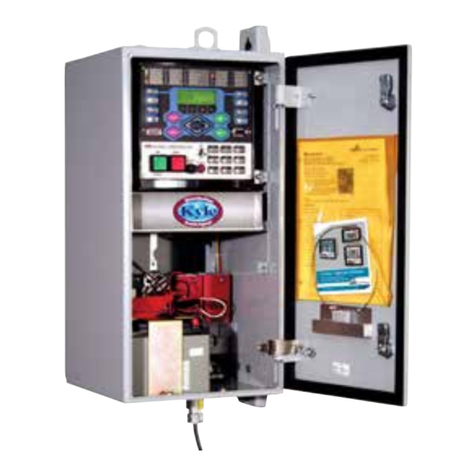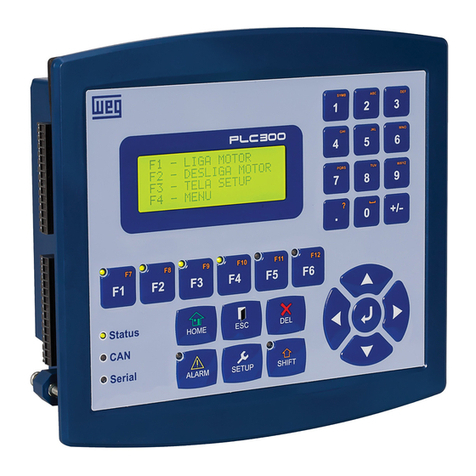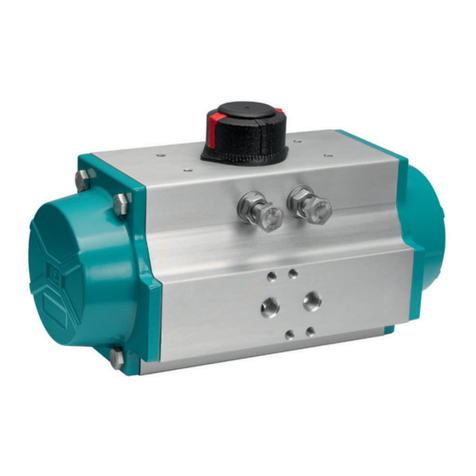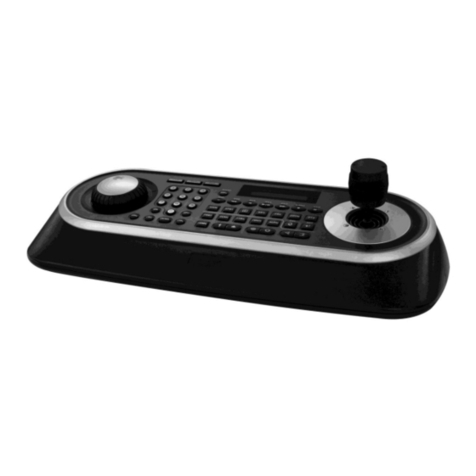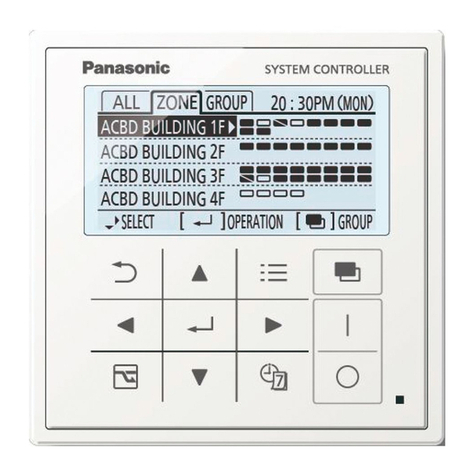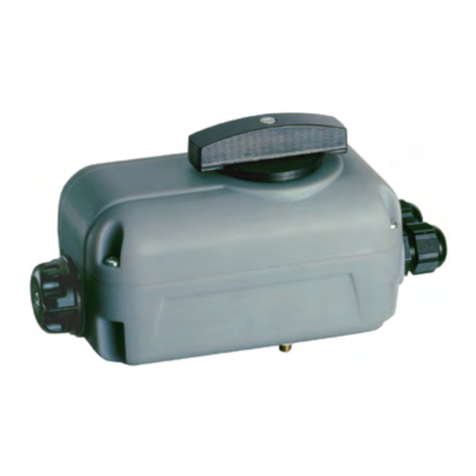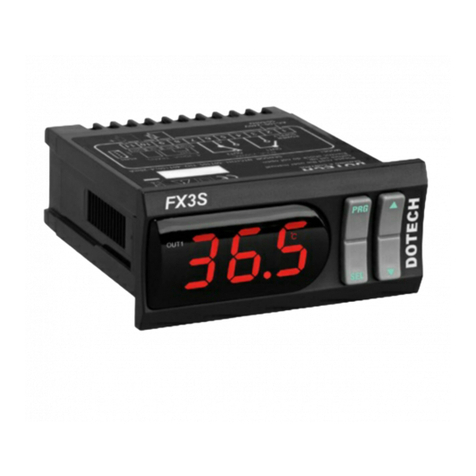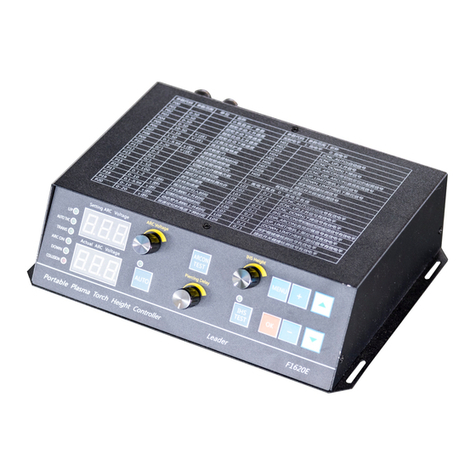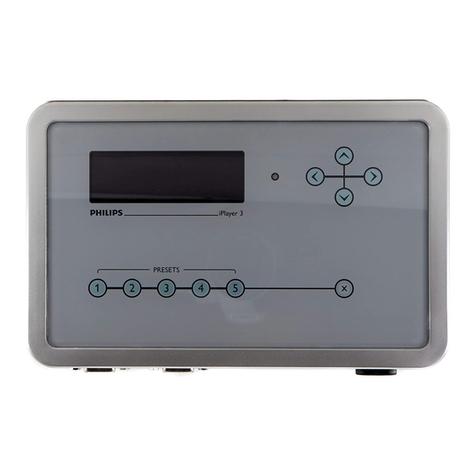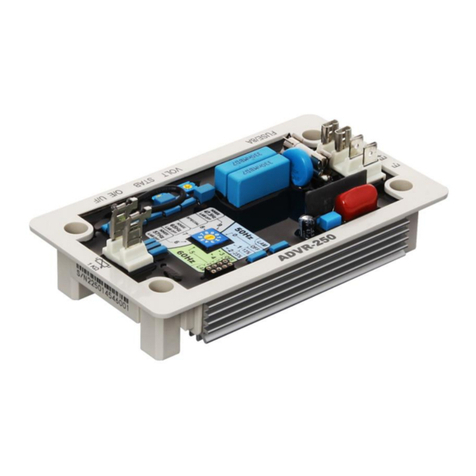DIGISYNTHETIC DS428E(WiFi) User manual

Digital Loudspeaker Management
DS428E(WiFi) / DS226E(WiFi) / DS224E(WiFi)
Owner’s Manual
MUT EMUT E MUT E/CHA NNEL ME NU (PRE SS&HOL D 3S)
IN- A IN-B IN- C IN-D O UT1 O UT2 O UT3 O UT4 O UT5 OU T6 OU T7 OU T8
DIGITAL CROSSOVER PARA MET ER
REC ALL
SAVE/ ENT ER
MAI N MENU
CUR SOR
DS428E
CLI P
+12
+6
0
-6
-12
-24
CLI P
+12
+6
0
-6
-12
-24
CLI P
+12
+6
0
-6
-12
-24
CLI P
+12
+6
0
-6
-12
-24
CLI P
+12
+6
0
-6
-12
-24
CLI P
+12
+6
0
-6
-12
-24
CLI P
+12
+6
0
-6
-12
-24
CLI P
+12
+6
0
-6
-12
-24
CLI P
+12
+6
0
-6
-12
-24
CLI P
+12
+6
0
-6
-12
-24
CLI P
+12
+6
0
-6
-12
-24

2
1
8
5
467
9 10 11 12
Front Panel
WIFI Adapter Interface
7-Segments LED Input Level Indicator
7-Segments LED Output Level Indicator
132×32 Dot-Matrix LCD
MAIN MENU Navigation Buttons
RECALL Button
1
2
3
4
5
6
PARAMETER Adjustment Rotary Encoder
USB Interface
Input MENU / MUTE Buttons and the Related LEDs
Output MENU / MUTE Buttons and the Related LEDs
CURSOR Navigation Buttons
SAVE / ENTER Buttons
7
8
9
10
11
12
There are three models in the series ( 4 in 8 out, 2 in 6 out, 2 in 4 out). Please choose the suited model for your application.
3
RISK OF ELECTRIC SHOCK
DO NOT OPEN
CAUTION: TO REDUCE THE RISK OF ELECTRIC
SHOCK DO NOT REMOVE COVER ( OR BACK)
NO USER-SERVICEABLE PARTS INSIDE
REFER SERVICING TO QUALIFIED PERSONNEL
CAUTION
≤2000m
IM PORTANT SAFETY INSTRUCTION
Please read the basic protective measure as below before using:
1. Please read all the safety instruction before using the product.
2. This product must be earthed. If it should be malfunctioned or breaking
down, grounding provides a path of least resistance for electric current
to reduce risk of electric shock.
3. This product is equipped with a cord having an equipment-grounding
conductor and a grounding plug. The plug must be plugged into an
appropriate outlet that is properly installed and earthed in accordance
with all local codes and ordinance.
DANGER - Improper connection of the equipment-grounding
conductor can result in a risk of electric shock. Consult with a
qualified electrician or serviceman if you are in doubt as to
whether the product is properly grounded. Do not modify the
plug provided with the product - if it does not fit the outlet, have
a proper outlet installed by a qualified electrician.
4. To reduce the risk of injury, close supervision is necessary when the
product is used near children.
5. Do not use this product near water-for example, near a bathtub,
washbowl, kitchen sink, in wet basement or near a swimming pool or
the lake.
7. This product should be located to a location or position does not
interfere with its proper ventilation.
8. This product should be located away from heat sources such as
radiators, heat registers or other products that produce heat.
9. The product should be connected to a power supply only of the type
described on the operation instructions or as marked on the product.
10. The power-supply cord of the product should be unplugged from the
outlet when left unused for a long period of time. When unplugging
the power-supply cord, do not pull on the cord, but grasp it by the
plug.
11. Care should be taken so that object do not fall and liquid are not
spilled into the enclosure through opening.
12. The product should be serviced by qualified service person when:
a) The power-supply cord or the plug has been damaged;
6. Whether used this product alone or connected to the power amplifier,
speaker or headset, excessive volume may cause permanent hearing
loss. Don't use for a long time in large or any volume may cause
discomfort. If you feel any hearing loss or tinnitus, Please seek
medical advice.
b) Objects have been fallen, or liquid has been spilled into the product;
c) The product has been exposed to rain;
d) The product does not appear to operate normally or exhibits a
marked change in performance;
e) The product has been dropped or the enclosure damaged.
13. Do not attempt to service the product beyond that described in the
user-maintenance instructions. All other servicing should be referred
to qualified service personnel.
14. WARNING - Do not place objects on the product's power cord or
place it in a position where anyone could trip over, walk on or roll
anything over it. Do not allow the product to rest on or to be
installed over power cords of any type.
Improper installations of this type create the possibility of fire
hazard and/or personal injury.
15. The power-supply cord should be unplugged from the outlet when the
products is completely power off from the electric power sources and
electric networks .
Only use it below the attitude of 2000ms for safety
application.
Only use it in nontropical climate condition for safety
application.
The lightning flash with arrowhead symbol within an
equilateral triangle is intended to alert the user to the
presence of uninsulated dangerous voltage within the
product's enclosure, that may be of sufficient magnitude to
constitute a risk of electric shock to persons.
The exclamation point within an equilateral triangle is
intended to alert the user to the presence of important
operation and maintenance (servicing) instruction in the
literature accompanying the appliance.
1
MUT EMUT E MU TE/ CHA NNE L MENU (PRE SS&H OLD 3 S)
IN- A IN- B IN -C IN -D OU T1 OUT 2 OU T3 O UT4 OU T5 OU T6 O UT7 O UT8
DIGITAL CROSSOVER PARA MET ER
REC AL L
SAVE/EN TER
MAI N MENU
CUR SO R
DS428E
CLI P
+12
+6
0
-6
-12
-24
CLI P
+12
+6
0
-6
-12
-24
CLI P
+12
+6
0
-6
-12
-24
CLI P
+12
+6
0
-6
-12
-24
CLI P
+12
+6
0
-6
-12
-24
CLI P
+12
+6
0
-6
-12
-24
CLI P
+12
+6
0
-6
-12
-24
CLI P
+12
+6
0
-6
-12
-24
CLI P
+12
+6
0
-6
-12
-24
CLI P
+12
+6
0
-6
-12
-24
CLI P
+12
+6
0
-6
-12
-24

MAINS IN
90V-250VAC / 50 -6 0H z
RS 23 2
1
用户程式 菜单
1 2
反馈抑制 话筒激励 效果模式 超低音 模式
34存储
话筒模式
音乐模 式
音乐激励 音乐音 量/编辑(按下) 效果音量
话筒音 量
话筒
2 3
6
5
3
4
OUTPUT5
Rear Panel
1
Mains Input & Fuse Box
RS232 PC Control Interface
RS485 Input
1
2
3
2
System Connection Diagram
PC
4
5
6
8 / 6 / 4 Channel Output Sockets
4 / 2 Channel Input Sockets
RS485 Output
MAINS IN
90V-250VAC / 50 -6 0H z
RS 23 2
RS485 to USB
Adapter
RS485
INPUT
RS485
OUTPUT
Terminal Resistor
OUTPUT6
OUTPUT7
OUTPUT8
OUTPUT4
OUTPUT3
OUTPUT2
OUTPUT1
INPUT A
INPUT B
INPUT C
INPUT D
Power Amplifier
Loudspeaker
Power Amplifier Power Amplifier Power Amplifier
Loudspeaker Loudspeaker Loudspeaker Loudspeaker Loudspeaker Loudspeaker Loudspeaker
RS232
RS485
INPUT
RS485 OUTPUT
RS485 INPUT
RS485 OUTPUT
DIGITAL LOUDSPEAKER
MANAGEMENT
DIGITAL LOUDSPEAKER
MANAGEMENT
DSP Karaoke Processor
Mixing Console
MAINS I N
90V-2 50VA C /50-6 0Hz
RS232
MAINS I N
90V-2 50VA C /50-6 0Hz
RS232
MADE IN CHI NA
MADE IN CHI NA
MADE IN C HINA
MADE IN C HINA
2
There are three models in the series ( 4 in 8 out, 2 in 6 out, 2 in 4 out). Please choose the suited model for your application.
There are three models in the series ( 4 in 8 out, 2 in 6 out, 2 in 4 out). Please choose the suited model for your application.

***.***
***
2 Front Panel Buttons and the Function
2.1 MUTE
2.1.1 Press the MUTE
Function: Switch between the state of mut e or not for each channel.
Operation: Press MUTE within 2 second and then release it. The
status of mute or not is switchable for each channel.
2.1.2 Press and Hold the MUTE
Function: Enter in the parameter setting menu of some channel.
Operation: Press and hold the MUTE (about 3 seconds) of some
channel till the settings page displayed on LCD. Then
release it. The settings menu of this channel has been
entered.
2.2 PARAMETER Encoder
2.2.1 Rotate the Encoder
Function: Change the value or options of parameters. Rotate
clockwise to increase the value. Rotate anticlockwise to
decrease the value.
Operation: Rotate the encoder clockwise or anticlockwise.
2.2.2 Push the Encoder
Function: Lock and unlock. Push it for lock all buttons and
encoder, push again to unlock.
Operation: Push the encoder and release it.
2.3 MAIN MENU and
Function: A) Switch to different settings page of the same channel at
the channel parameter set menu.
B) Switch to different menus at program management and
configuration setting.
Operation: Press it and then release it.
2.4 CURSOR and
Function: Move the Cursor position to change the parameter at the
Cursor.
Operation: Press the button and then release.
2.5 RECALL
Function: A) Enter into user program menu.
B) Return to the root menu.
Operation: Press the button and then release.
2.6 SAVE / ENTER
Function: A) Enter in the menu of saving user program.
B) Enter in the next submenu or confirm the function.
Operation: Press the button and then release.
3 Front Panel Menu Operation
3.1 Common Operation for Channel Parameter Set
®Press and hold the MUTE (about 3 seconds)of some channel
and enter into the parameter settings menu of this channel.
®Press button MAIN MENU or to switch between different
pages in this channel.
®Press CURSOR or to move cursor position, and then
rotate the Rotary Encoder to adjust the value.
3.2 Various Operations for Channel Parameter Set
3.2.1 Input / Output Mute Set
®Press MUTE button to your designated channel within 2 seconds
and release it. Mute status will be reversed when press the button
each time.
®The LED in the MUTE button will bright in red when the channel
is mute, vice versa.
®
®
®
◀ ▶
◀ ▶
◀ ▶
◀ ▶
3.2.2 Input / Output Gain Set
Press MAIN MENU ◀ or ▶ to switch to GAIN settings page.
Rotate the Rotary Encoder to change the value.
Can also press CURSOR ◀ or ▶ to change the cursor's position
below the value, in order to switch to other step, such as 0.1dB or
1dB.
1 IN-A GAIN: -10.3dB
MEMORY
1 USER PROGRAM:1
Features
®24-bit DSP technology, high performance AKM AD/DA, simple
operation and excellent performance.
®4 in 8 out (2 in 6 out, 2 in 4 out) multi-kinds of crossover mode
for flexible configuration.
®Input /output volume control with the range -40dB to +12dB and
the minimum step 0.1dB .
®9 bands PEQ for each input / output, each band PEQ has
Parametric, L-Shelf 6dB , L-Shelf 12dB , High-Shelf 6dB, High-
Shelf 12dB. Each PEQ has Phase shifter setting with the range
0°to 178°.
®PEQ frequency range: 19.7Hz to 21.9Hz, Gain range: -30dB to
+15dB , bandwidth: 0.017 to 4.750 Octave.
®31 bands GEQ for each input / output,
Gain range: -30dB to +15dB.
®Output high-pass and low-pass filter, each filter has multi-kinds
of slopes and types. Filter slope: 12dB/Oct 24dB/Oct 36dB/Oct
48dB/Oct. Filter type: Butterworth, Bessel, Linkwitz-Riley.
®The maximum 2000.02ms delay for each input/output channel
with delay bypass switch.
The compressor in each input / output can be adjusted the
Threshold, Ratio, Attack-time, Release-time and knees.
Phase invert function is set in each input / output channel.
Channel setting copy function makes the adjusting much easier.
Multi channel parameters can be set simultaneously via Multi-
channel linking function .
Friendly and intuitive online interface. USB, RS232, RS485 or
WIFI can be connected with PC.
Multi processor networking function. One computer can be
connected to 3 kinds of processors ( 4 in 8 out, 2 in 6 out, 2 in 4
out) with the maximum 32 pcs for each model.
132*32 Dot-matrix LCD, 7 segments input/output level indicator
LED.
Mute LED indicator , button LED indicator.
Wide voltage design: From 90V to 250Vac, 50/60Hz.
Operation
1 Power on
1.1 Plug in the power cable, turn on the power switch on the panel,
then the LCD shows the brand, model and version.
1.2 When the loading is completed, the LCD shows the current
program number, name and the processor ID.
1/3-Octave ISO Spacing
From 19.7 Hz to 21.9 kHz.
®
®
®
®
®
®
®
®
®
3

3.2.3 Input / Output Delay Set
®Press MAIN MENU or to switch to DELAY settings page.
®Rotate the Rotary Encoder to change the parameters with the
step of 0.021ms.
◀ ▶
®
3.2.4 Input / Output PEQ Set
®Press MAIN MENU ◀ or ▶ to switch to PEQ settings page.
®Press CURSOR ◀ or ▶ to move the cursor position.
®Rotate the Rotary Encoder to adjust the parameters at the
cursor position.
®The Frequency, Gain of PEQ can be adjusted coarse or fine at the
cursor position.
3.2.5 Input / Output GEQ Set
®Press MAIN MENU ◀ or ▶ to switch to GEQ settings page.
®Press CURSOR ◀ or ▶ to move the cursor position.
®Rotate the Rotary Encoder to adjust the parameters at the
cursor position.
®Gain of GEQ can be adjusted coarse or fine at the cursor position.
3.2.6 Input / Output EQ Bypass Set
®Press MAIN MENU ◀ or ▶ to switch to ALL BYPASS settings
page.
®Press CURSOR ◀ or ▶ to move the cursor position.
®Switch between PEQ ALL-BYPASS and GEQ BYPASS.
®Rotate the Rotary Encoder to adjust the parameters at the cursor
position.
3.2.7 Input / Output Compressor Set
®Press MAIN MENU ◀ or ▶ to switch to COMPRESS settings
page.
®Press CURSOR ◀ or ▶ to move the cursor position.
®Rotate the Rotary Encoder to adjust the parameters at the cursor
position.
3.2.8 Input / Output LINK Set
®Press MAIN MENU ◀ or ▶ to switch to LINK settings page.
®Press CURSOR ◀ or ▶ to move the Cursor position.
®Rotate the Rotary Encoder to adjust the parameters at the cursor
position.
®Press SAVE/ENTER into the link confirmation dialogs.
Can also press CURSOR ◀ or ▶ to change the cursor's position
below the value, in order to switch to other step, such as 105ms,
10.5ms, 1.05ms, 0.105ms, 0.021ms, or adjust the Delay switch.
933.35mS
321.47m
2241.21ft
2 IN-A DELAY:
ON
3 IN-A PEQ 1 ON PEQ
31.3Hz +0.0dB 0.500
5 IN-A GEQ 19 OFF
1280 Hz +6.5dB
4 IN-A ALL-BYPASS
PEQ:OFF GEQ:OFF
6 IN-A COMPRESS OFF
+3.5dBu 4:1 AT: 25mS
RT: 200mS
®
◀ or ▶
®◀ or ▶HIGH/LOW - PASS
F
◀ or ▶
®HIGH/LOW - PASS F
◀ or ▶
◀ or ▶
®Rotary
Default is NO, no link setting. Switch between YES and NO with
the Rotary Encoder.
®Press SAVE/ENTER again to confirm the link setting.
Note: Yes is chosen as link set, the source channel parameters will
be copied to the target channel.
3.2.9 Data COPY of Input / Output Channel
®Press MAIN MENU to switch to COPY settings page.
®Rotate the Rotary Encoder to change the target channel.
®Press SAVE / ENTER into COPY confirmation dialogs.
®Default is NO, no copy operation. Switch between YES and NO
with the Rotary Encoder.
®Press SAVE / ENTER again to confirm the copy operation.
Note: At the COPY set, the source channel parameters will be
copied to the target channel.
3.2.10 Output HIGH/LOW PASS FILTER Set
Press MAIN MENU to switch to
ilter settings page.
®Press CURSOR to move the cursor.
®Rotate the Rotary Encoder to adjust the parameters at the cursor
position.
The frequency of ilter can be adjusted
coarse or fine at the cursor position.
3.2.11 Output PHASE Set
®Press MAIN MENU to switch to PHASE settings page.
®Rotate the Rotary Encoder to change PHASE parameter.
3.2.12 SOURCE Set
®Press MAIN MENU to switch to SOURCE settings page.
Rotate the Encoder to change SOURCE parameter.
7 IN-A CHANNEL LINK
Link to IN-D: OFF
7 IN-A CHANNEL LINK
Are you sure ? NO
4 OUT1 HIGH_PASS_FILTER
1620Hz 12 dB Linkriley
2 OUT1 SET PHASE
Phase: 180°
9 OUT1 SET SOURCE
Source: IN-A+IN-B
8 IN-A CHANNEL COPY
COPY TO: IN-B
8 IN-A Copy data to IN-B
Are you sure ? NO
4

®Rotate the Rotary Encoder to change the preset program number.
®Press SAVE / ENTER to finish the operation of erasing user
program.
3.3.5 Device Address Setting
®Press RECALL to return to the root menu if entered channel menu,
or skip this step.
® Then press MAIN MENU ◀ or ▶ till the menu(SET DEVICE
ADDRESS) as the below picture displays.
®Rotate the Rotary Encoder to change the device address.
®Press SAVE / ENTER to finish the operation of device address
setting.
3.3.6
Press RECALL to return to the root menu if entered channel menu,
or skip this step.
◀ or ▶
◀ or ▶
Rotary E
Lock / Unlock the Device
®
®Then press MAIN MENU till the menu (LOCK DEVICE)
as the below picture displays.
®Press CURSOR to move cursor.
®Rotate the ncoder to change the lock type and password.
®Press SAVE/ENTER to finish the lock operation.
3.3
3.3.1 Recall an User Program
Continuously press RECALL till the menu (LOAD USER
PROGRAM) as the below picture .
Rotate the Encoder to change the program number.
®Press SAVE/ENTER to finish the recall operation.
Program Management and Configuration Setting
®
displays
®Rotary
3.3.2 Store an User Program
®Press RECALL to return to the root menu if entered channel
menu, or skip this step.
®Then press SAVE / ENTER till the menu (STORE USER
PROGRAM) as the below picture displays.
®Press CURSOR ◀ or ▶ to move the cursor.
®Rotate the Rotary Encoder to change program number and
program name.
®Press SAVE/ENTER to finish the storing operation.
3.3.3 Recall a Preset Program
®Press RECALL to return to the root menu if entered channel
menu, or skip this step.
®Then press MAIN MENU ◀ or ▶ till the menu (LOAD PRESET
PROGRAM) as the below picture displays.
®Rotate the Rotary Encoder to change the preset program number.
®Press SAVE / ENTER to finish the operation of recall preset.
3.3.4 Erase an User Program
®Press RECALL to return to the root menu if entered channel
menu, or skip this step.
®Then press MAIN MENU ◀ or ▶ till the menu(ERASE USER
PROGRAM) as the follow picture displays.
3 LOAD USER PROGRAM:1
MEMORY
Loading User Program
Please Wait.... ..
4 STORE USER PROGRAM:1
MEMORY
Storing User Program
Please Wait.... ..
2 LOAD PRESET PROGRAM:1
4x2Way Crossover
Loading Preset
Please Wait. . . . . .
5 ERASE USER PROGRAM:1
MEMORY
5 ERASE USER PROGRAM:1
Are you sure ? NO
Eras i ng U s e r Prog r am
Please Wait. . . . . .
6 SET DEVICE ADDRESS
DEVICE ID: 1
Setting Device address
Please Wait.... ..
4 STORE USER PROGRAM:1
Are you sure ? NO
7 LOCK DEVICE
TYPE: Change & View
Password: 12345678
5
Lock succeed
7 LOCK DEVICE
TYPE: Change & View
Are you sure ? NO

3.3.8
®Rotary E
®Rotary E
3.3.9
3.3.9
Lock / Unlock the Buttons & Encoder
Push the ncoder to lock all Buttons and Rotary Encoder.
Push ncoder again to unlock.
Set WIFI Mode
®Press RECALL to return to program management and function set
menu at the channel parameter set display.
Then press MAIN MENU < or > till the menu (WIFI MODE) as
the lower left picture displays.
®Press MAIN MENU < or >till the menu (WIFI MODE) as the
lower left picture displays at the program management and
function set menu.
®Rotate the encoder to change the WIFI Mode.
®Press SAVE/ENTER, complete change the Mode.
®The Master Mode will turn on the and change the device as
Master device, we can connect other Slave device(s) by RS485
port at this Mode, all connected device can be controlled by
IPAD APP or PC Software.
®The Slave Mode will turn off the and change the device as
Slave device , all Slave device can be controlled only by
USB port or by RS485 use Slave Mode .
Reset WIFI
®Press RECALL to return to program management and function set
menu by parameter set display. Then press MAIN MENU < or >
till the menu (RESET ) as the below picture shows.
®Press MAIN MENU < or >till the menu (RESET ) as the
lower left picture displays at the program management and
function set menu.
®Press SAVE/ENTER, complete reset the .
WIFI
WIFI
WIFI
(s) (s)
WIFI
WIFI
WIFI
Items
Range
Steps
Gain
-40dB ~ +12dB
1dB/0.1dB
Delay
ON/OFF, 0ms~2000.02ms
105/10.5/1.05/
0.105/0.021(ms)
PEQ Bands
1 ~ 9
-
PEQ Bypass
ON/OFF
-
PEQ Type
PEQ, Low-Shelf 6dB,
Low-Shelf 12dB, High-
Shelf 6dB, High-Shelf
12dB, Phase-Shifter
-
PEQ Frequency
19.7Hz ~ 21.9kHz
Coarse/Fine
PEQ Gain
-30dB ~ +15dB
1dB/0.1dB
PEQ Bandwidth
0.017 ~ 4.750 Oct
-
Phase-Shifter
0°~178°
1°
GEQ Bands
1 ~ 31
-
GEQ Bypass
ON/OFF
-
GEQ Gain
-30dB ~ +15dB
1dB/0.1dB
Compressor’s
Knee
Off/Hard knee/Soft knee
1/Soft knee 2/Soft knee
3/Soft knee 4/Soft knee 5
-
Compressor’s
Threshold
-20dB ~ +20dB
0.5dB
Compressor’s
Ratio
1.2, 1.5, 2, 3, 4, 6, 10, 20,
40, 128
-
Compressor’s
Attack-Time
0 ms ~100ms
1ms
Compressor’s
Release-Time
50 ms ~1000ms
50ms
High/Low-Pass
Filter Frequency
19.7Hz~21.9kHz
Coarse/Fine
High/Low-Pass
Filter Solpe
Flat, 12dB Bessel,
12dB Butterworth,
12dB Linkwitz-Riley,
24dB Bessel,
24dB Butterworth,
24dB Linkwitz-Riley,
36dB Bessel,
36dB Butterworth,
36dB Linkwitz-Riley,
48dB Bessel,
48dB Butterworth,
48dB Linkwitz-Riley
-
Phase Inverter
0°/180°
-
3.5 Channel’s Parameter Range
8 WIFI MODE
MODE:Slave
9 RESET WIFI
RESET
Items
Range
Steps
Load User Program
1 ~ 30
1
Store User Program
Program Number: 1 ~ 30
Program Name: ASCII Charater
1
Load Preset Program
1 ~ 10
1
Erase User Program
1 ~ 30
1
Set Language
Chinese / English
-
Set Device Address
1 ~ 32
1
Lock / Unlock Device
Type: Change, Change&View,
Change & Mute, Everything
Password: ASCII Charater
-
3.4 Parameter Range of Program Management and Configuration
Setting
4 Software Installation
Put the CD enclosed in the computer, open the file SETUP.EXE in
the CD to launch the software. Set-up window will pop-up, click
the NEXT button and do it step by step till the installation is
completed.
6

5.4 WIFI Online Operation
5.4.1 Connect Mode:
Select one as master device, WIFI mode set to Master Mode, the other
devices select as Salve Mode.
Connect RS485 Input Port on Salve device to Output Port on Master
device.
The rest devices will be connected the same method until all device
are in the Network.
5.4.2 Operation on IPAD:
Turn on IPAD to connect the Master Devie to the correspond
wireless network, then open APP to control the unit on .
The default network name for master device is DS428E.
WIFI
IPAD
5.4.3 Download APP from Apple Store
1.Install App:
Search DIGISYNTHETIC in App Store on IPAD. Download
DIGISYNTHETIC MULTI DS SERIES CONTROLLER and complete
download process.
2.WIFI Connection:
1.Turn on the power, select ode on the control panel .
2.Set on iPad ->Wi-Fi->Connect Search 428E
network(Default SSID is 428E), and connect to the network.
P.S. : Stable singal distance is within 30 meters.
3.App Control
(1) Search the current access network device.
(2) Select online device.
(3) Switch to the operated device(s).
WIFI m
WIFI WIFI
WIFI
WIFI
RS485 OUT
RS485 IN
RS485 OUT
RS485 IN
RS485 OUT
RS485 IN
USB
terminal resistor
max 32 pcs
PC
7
5 PC Online Operation
5.1 Single Processor Communication Link with PC:
Multi-types as USB, RS232, WIFI etc.
Note: The ID of User Interface should be the same as the
processor in order to the succeed online.
5.2 Multi Processors Communication Link with PC: RS485
®
®
®
®
®
Note: 1. For the same model processor, each device ID should
be set differently.
2. Only main controlling processor must be Master mode
in all. processors.
Use USB-RS485 convertor and Cat 5e cable to connect PC with
RS485-IN interface of the first device. The first processor must be
Master Mode, the other must be Slave Mode.
Use Cat 5e cable to connect RS485-OUT interface of the first
device with RS485-IN interface of the second device.
Use Cat 5e cable to connect RS485-OUT interface of the second
device with RS485-IN interface of the third device.
As step 3, use Cat 5e cable to connect multi devices. One PC can
be connected with three models of device ( 4 in 8 out, 2 in 6 out, 2
in 4 out) . The maximum number of connections are 32 processors.
Finally, RS485-OUT of the last device is connected with the
terminal resistor via Cat 5e cable.
MUTE
IN-A
CLIP
+12
+6
0
-6
-12
-24
MAIN S IN
90V- 250VA C /50-6 0Hz
MADE IN CH IN A
RS 23 2
MAIN S IN
90V- 250VA C /50-6 0Hz
MADE IN CH IN A
RS 23 2
About the UI Operation, please refer to UI software manual.
5.3

Troubleshooting
Issues
No display on LCD
screen
Single processor can
not be connected with
PC for Online control.
No signal output at the
output channel
and LCD lights.
Troubleshooting Methods
Multi
not be connected with
PC for Online control.
processors can
1 Check if the power cable is plugged in.
2 Check if the fuse is burned.
3 Make sure that the power switch is ON.
2 Close the software and connect the
communication cable again, then
open the software.
2 Check if MUTE LED is on. Disable
the mute function.
1 Check if the communication cable is
connected correctly
1 Check if the communication cable is
connected correctly
2 Check if the ID addresses of the
same model processors are setting
differently.
3 Close the software and reconnect PC
with the first processor RS485 IN.
Open the software again.
1 Check if the communication cable is
connected correctly
1
1
1
Accessories
Name
Software CD
USB Online Cable
User Manual
Quantity
1
1
1
Options
Name
WIFI Adapter
USB-RS485 Converter
Terminal Resistor
Cat 5e Twisted-pair Cable
Quantity
Several
Reset the Device
1. Function:
This operation will reset the device to factory default settings, can
also repair the issue caused by improper operation.
WARNING - Any user program, device address and lock setting
that your have created will be lost.
2. Operation:
Press and hold the button SAVE / ENTER, then turn on the power
switch on the rear panel till LCD displays the following.
Resetting User Program
Please Wait...
MATRIX
IN A
IN B
IN C
IN D
OUT1
OUT2
OUT3
OUT4
OUT5
OUT6
OUT7
OUT8
Gain
Gain
Gain
Gain
Gain
Gain
Gain
Gain
Mute
Mute
Mute
Mute
Mute
Mute
Mute
Mute
9PEQ
9PEQ
9PEQ
9PEQ
9PEQ
9PEQ
9PEQ
9PEQ
Phase
Phase
Phase
Phase
Phase
Phase
Phase
Phase
31GEQ
31GEQ
31GEQ
31GEQ
31GEQ
31GEQ
31GEQ
31GEQ
Compressor
Compressor
Compressor
Compressor
Compressor
Compressor
Compressor
Compressor
Delay
Delay
Delay
Delay
Delay
Delay
Delay
Delay
X-over
X-over
X-over
X-over
X-over
X-over
X-over
X-over
0°
0°
0°
0°
0°
0°
0°
0°
~180°
~180°
~180°
~180°
~180°
~180°
~180°
~180°
Signal Processing Flow Diagram
Gain
Gain
Gain
Gain
Mute
Mute
Mute
Mute
9PEQ
9PEQ
9PEQ
9PEQ
31GEQ
31GEQ
31GEQ
31GEQ
Compressor
Compressor
Compressor
Compressor
Delay
Delay
Delay
Delay
8

Specifications
***The above design and specifications are subject to change without prior notice for product improvement.
4 / 2
8 / 6 / 4
8 kΩ
20 dBu+
> 55 dB
XLR-3Pin Female Connector
48 kHz
150 Ω
+20 dBu
XLR-3Pin Male Connector
-40dB ~ +12dB
0ms ~ 2000.02 ms
9
PEQ, 6dB / 12 dB Low-Shelf, 6dB / 12 dB High-Shelf, Phase Shifter
19.7 Hz ~ 21.9 kHz
-30 dB ~ +15 dB
0.017 ~ 4.750 Oct
31
1/3-Octave ISO Spacing From 19.7 Hz to 21.9 kHz
-30 dB ~ +15 dB
-20 dB ~ +20 dB
1.2, 1.5, 2, 3, 4, 6,
10, 20, 40, 128
0 ms ~100ms
50 ms ~1000 ms
19.7 Hz ~ 21.9 kHz
Bessel, Butterworth,
Linkwitz-Riley
12dB/Oct, 24dB , 36dB , 48dB/Oct/Oct /Oct
20 Hz ~ 20 kHz ±0.1dB
> 112 dB (A-Weighting)
< 95 dB
< 0.004% (1kHz, 1Vrms)
90 V-250 Vac, 50/60 Hz
T1AL , AC250 V
30 W
482×218×45 (mm)
3.6 kg
Number of Input Channel .........................................................................................................................................................
Number of Output Channel ...................................................................................................................................................
Input Impedance .....................................................................................................................................................................
Maximum Input Level .......................................................................................................................................................
Input CMRR .....................................................................................................................................................................
Input Sockets ......................................................................................................................................
Sampling Frequency ............................................................................................................................................................
Output Impedance .................................................................................................................................................................
Maximum Output Level .....................................................................................................................................................
Output Sockets .......................................................................................................................................
Input / Output Gain .................................................................................................................................................
Input / Output Delay ............................................................................................................................................
Input / Output PEQ Bands ............................................................................................................................................................
Input / Output PEQ Type .............................................................
Input / Output PEQ Frequency ............................................................................................................................
Input / Output PEQ Gain .......................................................................................................................................
Input / Output GEQ Bands ..........................................................................................................................................................
Input / Output PEQ Bandwidth ............................................................................................................................
Input / Output GEQ Gain .......................................................................................................................................
Input / Output Compressor Attack-Time ......................................................................................................................
Input / Output Compressor Release-Time ................................................................................................................
Input / Output GEQ Frequency .............................................................................
Input / Output Compressor Threshold .....................................................................................................................
Input / Output Compressor Ratio ....................................................................................................
Output High / Low-Pass Filter Frequency ...........................................................................................................
Output High / Low-Pass Filter Type ..........................................................................................
Output High / Low-Pass Filter Slope ................................................................................
Frequency Response ...................................................................................................................................
Dynamic Range ..........................................................................................................................................
Crosstalk ...........................................................................................................................................................................
THD+N .....................................................................................................................................................
Mains Input Voltage & Frequency ...............................................................................................................
Fuse Size ..............................................................................................................................................................
Power Rating .........................................................................................................................................................................
Dimensions .......................................................................................................................................................
Net Weight .. ........................... ..............................................................................................................................................
9
This manual suits for next models
2
Table of contents
Popular Controllers manuals by other brands
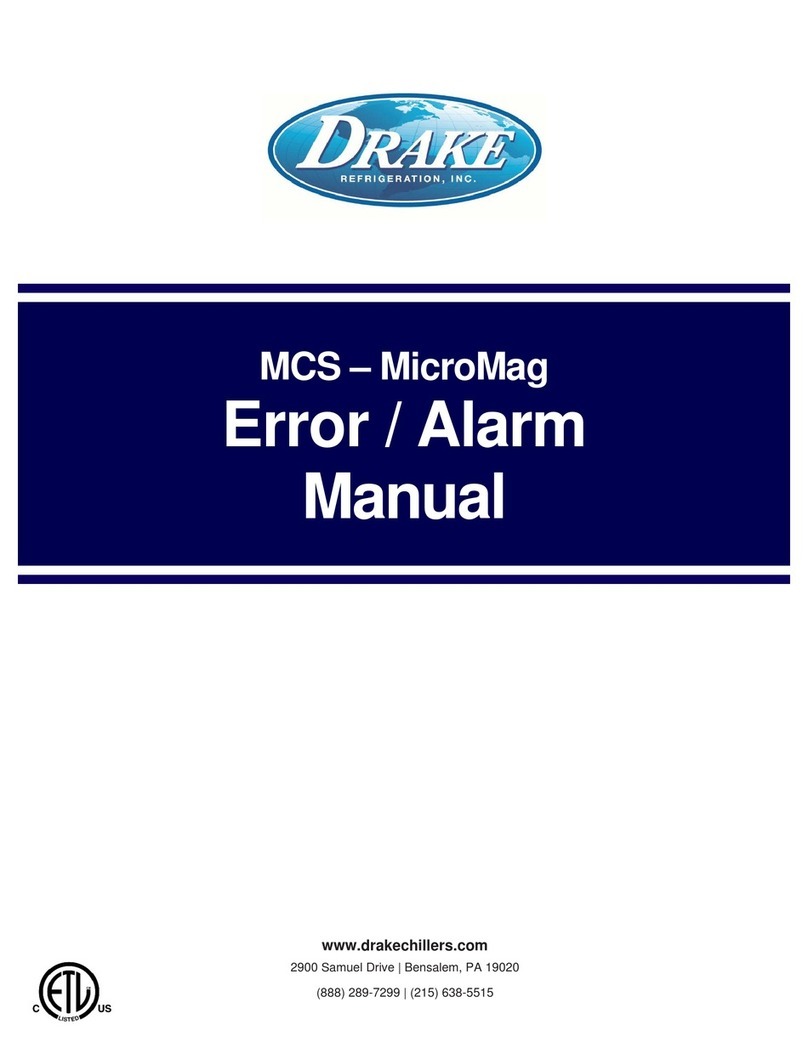
DRAKE
DRAKE MCS-MicroMag Error / Alarm Manual
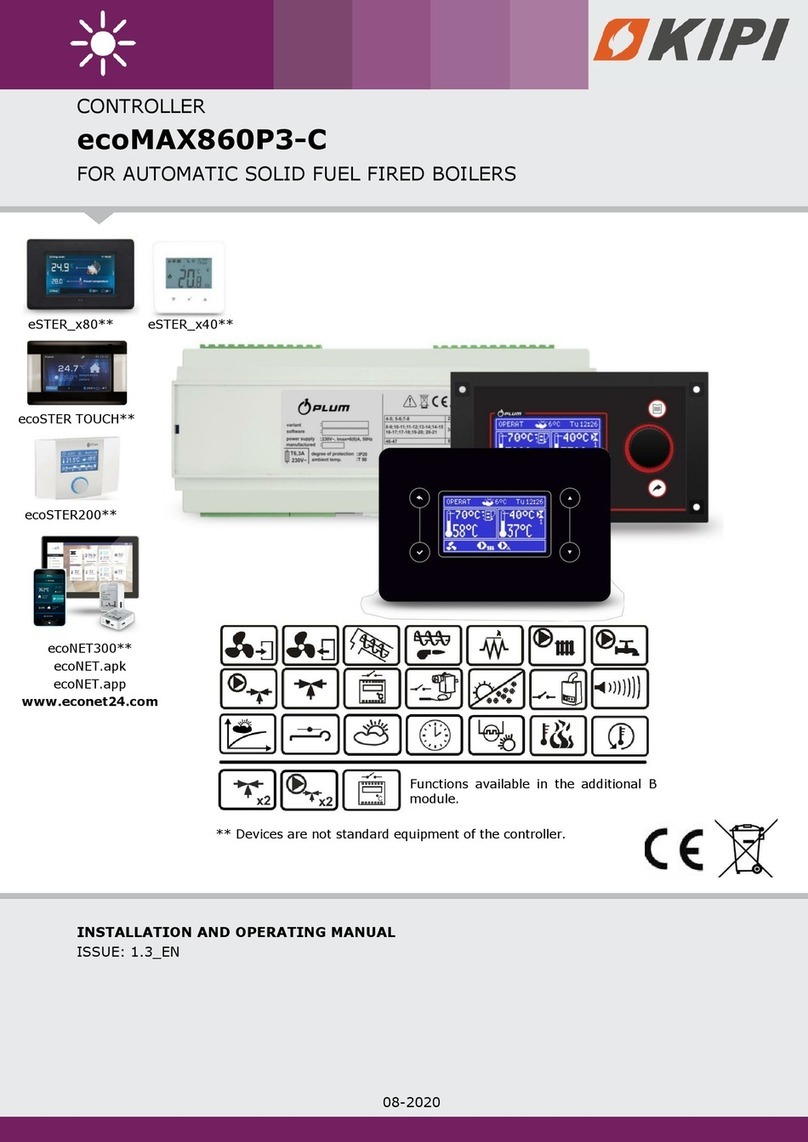
KIPI
KIPI ecoMAX860P3-C Installation and operating manual

Nidec
Nidec Leroy-Somer R450 M Installation and Maintenance
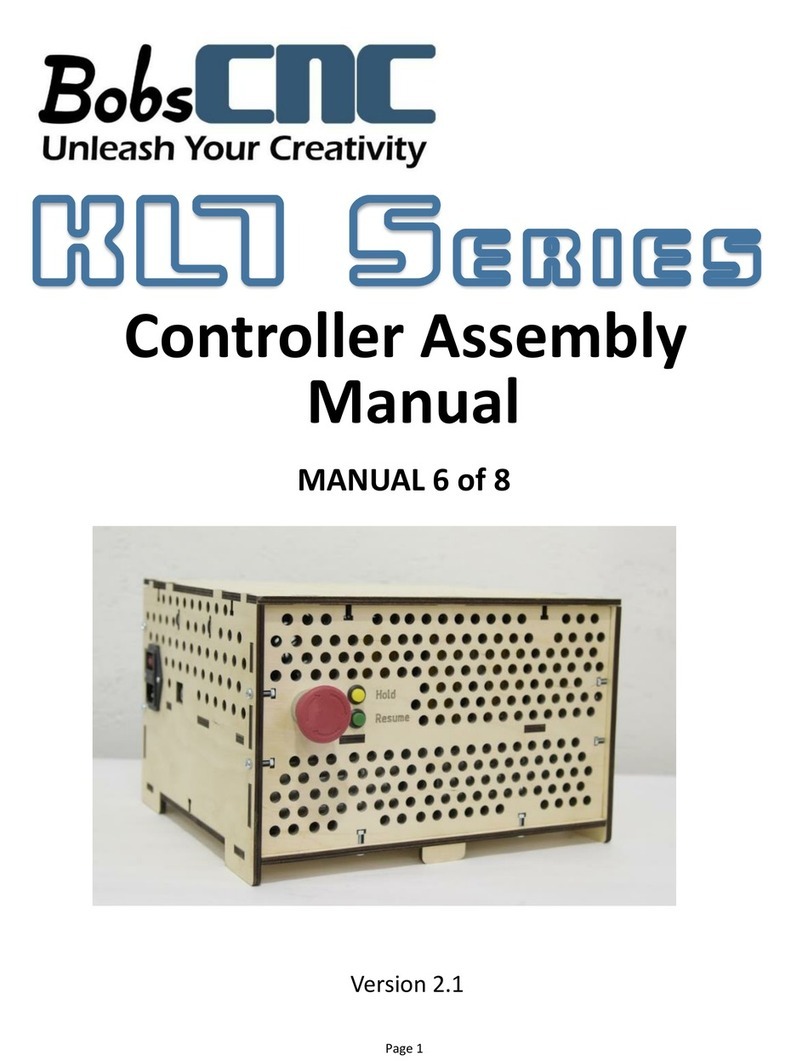
BobsCNC
BobsCNC KL7 Series Assembly manual
intelliConsole
intelliConsole IC200 quick start guide
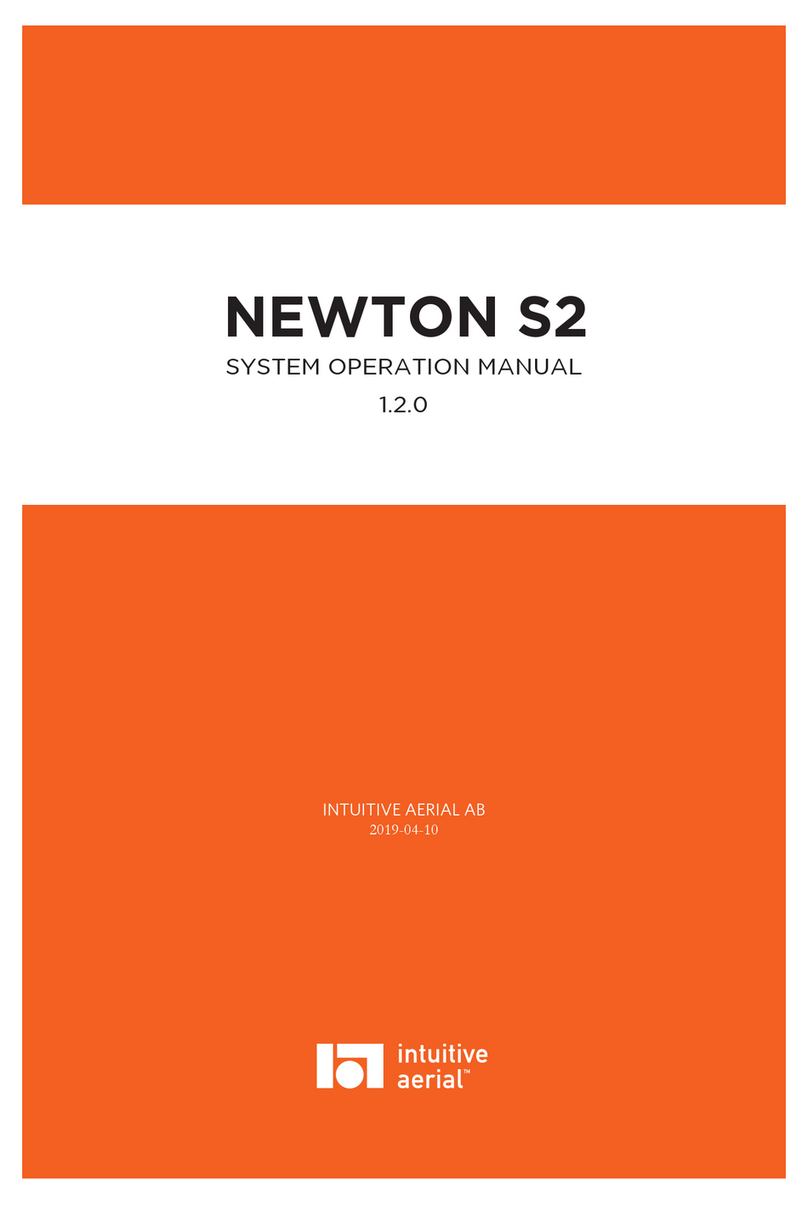
Intuitive Aerial
Intuitive Aerial Newton S2 3G System operation manual
